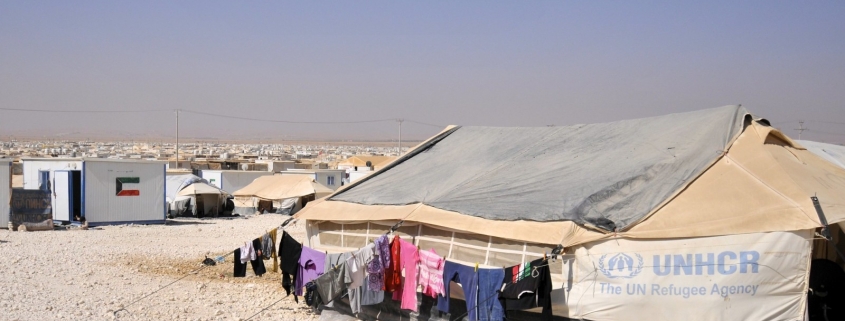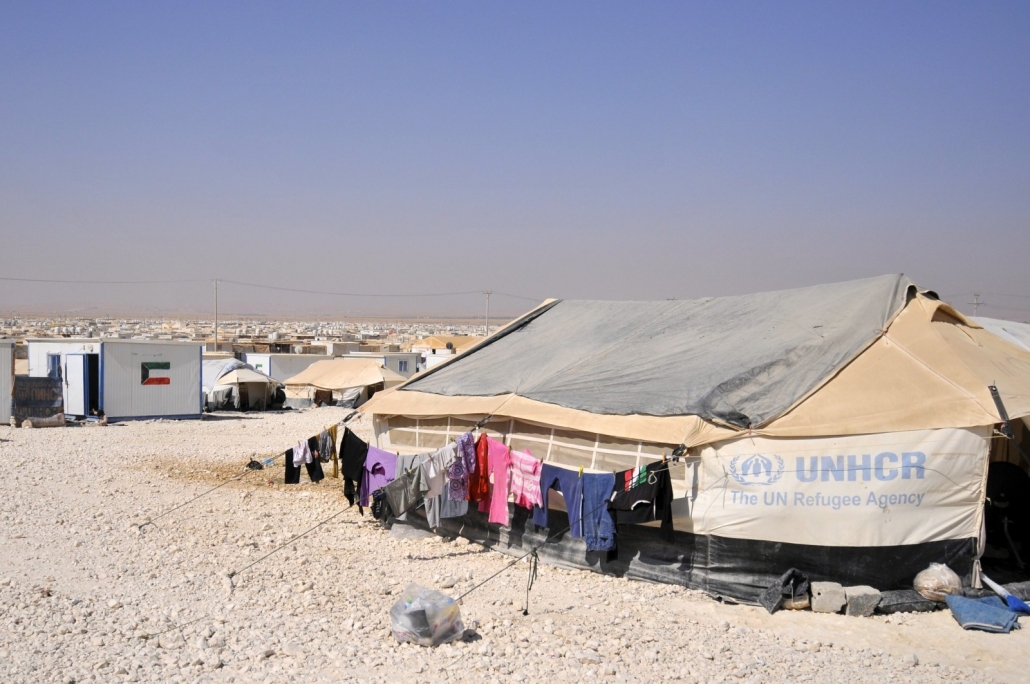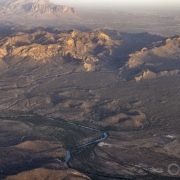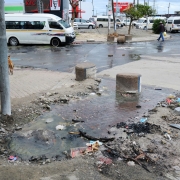HotSpots H2O: Coronavirus Threat Rattles Water-Scarce Refugee Camps
Zaatari refugee camp, Jordan. Photo courtesy of Flickr.
As the coronavirus expands across the globe, millions of refugees living in crowded, ill-equipped camps are bracing for the arrival of the pandemic.
Last week, a case of Covid-19 was confirmed on the Greek island of Lesbos, raising concerns about the potential spread of the virus within the island’s Moria refugee camp. The camp houses around 20,000 people, and conditions are grim. Residents report shortages of everything from food to diapers. In some areas, there is only one water tap for every 1,300 people, and sanitation is woeful. Many refugees also suffer from lingering health conditions, including respiratory issues, which are a risk factor for Covid-19.
“I saw many people with respiratory problems and even though it’s cold, it’s winter, we are sending these people back to wet tents in an overcrowded camp. I am worried about a pandemic breaking out,” Dr. Hana Pospisilova, a cardiologist who volunteers frequently on Lesbos, told The Guardian. “If you read about Spanish flu it was exactly like this that it began to spread, in overcrowded facilities where people had a viral infection that became a bacterial infection that killed them.”
Conditions in the camp further deteriorated in the past week as anti-migrant unrest prompted humanitarian groups on the island to restrict or shut down services.
Refugees on the Greek islands are just a portion of the world’s 70 million displaced people, a group that is especially prone to infectious disease. Soap, water, and hand sanitizer are scarce, leaving many people unable to practice safe or consistent handwashing. Tents and other makeshift shelters are crammed side-by-side in most camps, making social distancing nearly impossible. And, if Covid-19 does take hold in any of the world’s refugee camps, a chronic lack of medical supplies and facilities could be catastrophic.
“If Covid gets into a camp, for example, you’re going to see quite a spike in the death rate, because there’s simply going to be no way of keeping them alive until they recover,” Richard Sullivan, a professor and co-director of the Conflict and Health Research Group at Kings College London, told VOA. Sullivan added that refugees and internally displaced people who live in especially remote areas, far from official help, are at the greatest risk if their camps are stricken with Covid-19.
A lack of knowledge about the disease and its causes is another vulnerability among the refugee population. Aid groups are working to provide accurate information about the symptoms and prevention of Covid-19, but many populations are difficult to reach, and rumors are rampant.
VOA reporters interviewed several residents of Cox’s Bazar, an area of Bangladesh that is now home to 900,000 Rohingya refugees who fled violence in neighboring Myanmar. Several interviewees expressed confusion about the disease and its symptoms, although there was a general consensus about the importance of handwashing.
Even well-informed refugees, however, remain constrained by a lack of supplies.
“[Aid workers] gave us an awareness session and one bar of soap each, but this is not enough,” Syrian refugee Mohamed al-Bakhas, who lives in a camp in northern Lebanon, told Reuters. “We ask for disinfectants, sanitizers for the camp. We are a big group.”
In Rwanda, the Ministry of Emergency Management is working alongside aid groups to combat shortages of supplies and information in refugee camps. The ministry has restricted school and church activities and banned large gatherings for the next two weeks. Officials say they will work to ensure that each refugee is given 20 liters of water per day, as well as other hygiene essentials. An awareness campaign is also being planned.
Despite the proactive measures in Rwanda and other camps, the potential toll of Covid-19 on the world’s extensive refugee population remains a deepening concern, and experts warn that the current lack of confirmed cases in many refugee camps can likely be chalked up to insufficient testing.
Kayla Ritter is a recent graduate of Michigan State University, where she studied International Relations and Teaching English to Speakers of Other Languages. She is currently based in Manton, Michigan. Kayla enjoys running, writing, and traveling. Contact Kayla Ritter




 © J. Carl Ganter / Circle of Blue
© J. Carl Ganter / Circle of Blue 








Leave a Reply
Want to join the discussion?Feel free to contribute!